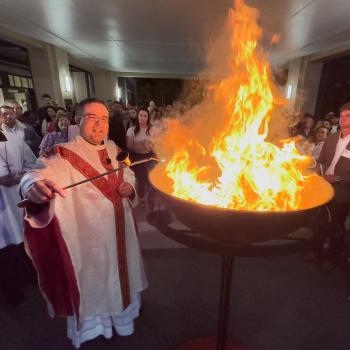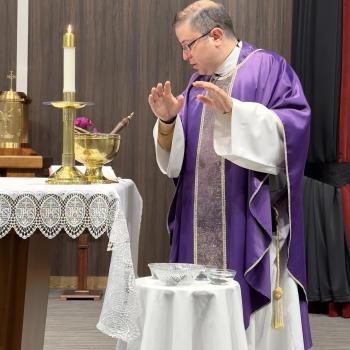In my previous post I promised I’d discuss the effectiveness of catechisms such as the 1918 Catechism of Christian Doctrine which I presented in my previous post, and the much better known Baltimore Catechism.
Susan commented on my previous post that this type of brief and direct question and answer format served her well. “Those basic questions have served me well, especially when I was studying theology and it would be way above my head! Those simple questions and answers came back to me immediately and re-centered my addled brain”
This is the greatness of this type of question and answer catechism. The handing down of the faith to the next generation becomes uniform and solid, easy to memorize. The answers are compact, clear and meaningful. There are currently hundreds of thousands of Catholics catechized before the 1970s that when asked, “why did God make you?” they will respond without hesitating, “God made me to know Him, to love Him, and to serve Him in this world, and to be happy with Him forever in the next.” This is the power of the Baltimore Catechism.
By the end of the 1960s the Baltimore Catechism was put aside. The catechizing of children was modified, and has in many places, resulted in the poor handing down of the faith to the next generation. Some blame the discontinued use of the Baltimore Catechism and speak of its reintroduction as the solution to poor catechesis. But is this the solution?
I suspect children today would be unsatisfied with the methodology of the Baltimore Catechism. The doctrine it teaches must certainly be taught to the next generation, but not necessarily in the same fashion.
The 1918 Catechism of Christian Doctrine proudly notes that the answers given are very brief and the words “so simple as to require little explanation from the teacher.” I sense that would not go well with today’s youth. I once opened up for questions at a retreat for sixth graders. The first question was, “I have a Jewish friend, will he be able to go to heaven?” That’s a heavy question coming from an eleven year old! When speaking to eighth graders, many questions emerged about annulment and remarriage in the church. A second grader asked me about one year ago, “why have astronauts not brought back a picture of God?”
I am not saying present-day children are more intelligent or more astute than children in the past, but I do believe that today’s globalized, free-flowing information and sometimes dysfunctional society presents children with difficult questions that in the past children did not have to consider.
Memorizing answers from a catechism is instrumental to attain a sound foundation in the faith, but it will not give you faith. I wonder how many present-day, fallen-away Catholics only remember the Baltimore Catechism and equate the faith with an empty, repetitive, babbling question and answer game to be played to avoid Sister from hitting you with the ruler?
I do not offer a solution to this dilemma, yet it is one of the greatest challenges of our times. How do we ensure the safe passage of our faith to the next generation? All it takes is one generation not to be handed down the faith for the faith to be lost! It is so fragile.
Is a catechism based on the Baltimore Catechism method the solution? Perhaps we must look to Youcat, the recently published youth catechism, which uses a question and answer method to tackle some of the challenging questions facing the youth today?
















